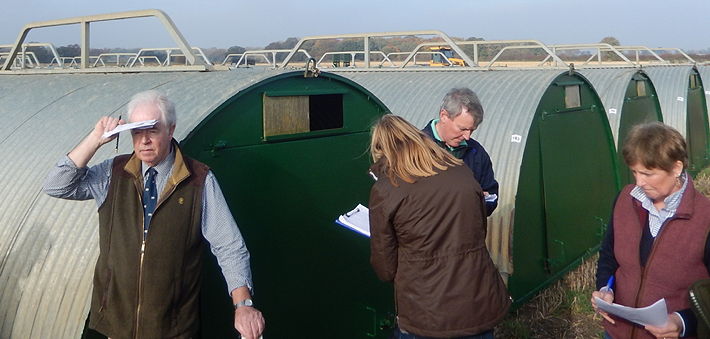Despite some indications of better times ahead, the situation on the ground remains at critical levels as far as the British pig industry is concerned.
The latest SPP took another downward step of 2.31p to stand at 144.16p, although EU prices are reported to be generally holding firm but at very low levels with the EU average reference price in the region of 110p/kg, although their producers also receive the benefit of lower abattoir deductions and grading levels and in some cases free haulage.
Weekly contribution prices have been anywhere between stand on and down a penny across a fairly wide range between the top end at 139p and the lowest at 130p.
Oversupply remains a major problem with large numbers of contract pigs still being put on ‘hold’ due to the ongoing shortage of processing labour.
As a result, although spot bacon “regulars” were generally able to agree prices in the 120p – 125p/kg region one off loads of spot pigs remain virtually homeless at not much more than 85p/kg in some places, assuming space can be found.
Recent UK inflation figures have done nothing to help the currency situation leading to a sharp rise in the Pound, which hit the Euro and clipped its value from 85.54p a week ago to 84.1p today.
This effectively reduces the cost of pig meat imports which are already far too cheap and also knocks the value of any pig meat exports from the UK to our producers’ detriment.
Cull sow values remain chained to the floor in and around 26p/kg, which puts the value of an average sow at little more than £35/head, compared with over 60p/kg a year ago.
Once again, no AHDB average prices have been published but contract values are continuing to slip in line with the SPP.
RSPCA assured piglets sold on contract generally traded between £33-£37/head with Red Tractor weaners at a £3-£5/head discount in most cases, but non-contract pigs remain almost impossible to clear.
Another of the main reasons for the difficulty in finding buyers for weaners is because feed and other costs are continuing to soar.
The latest UK feed wheat futures price has now risen to £228/t for December delivery with September 2022 quoted at £204/t. The latest UK average ex farm spot feed wheat price has risen to £216.40/t.
This bullish trend continues to be reflected in feed barley values which have now risen to £212/t for December and £190/t for September 2022.
Rising protein prices are also continuing to rub salt into the wound with February – April 2022 Hipro soya traded at £370/t and May – October 2022 at £348/t. Rapemeal prices have risen yet again with December – January 2022 quoted at £298/t.
And finally, some fragile green shoots may be appearing through the bamboo curtain where a chink of light at the end of the tunnel is possibly indicating that Chinese interest in UK ASF-free pig meat has to some extent been rekindled at a time when their domestic pig meat prices have risen more than 50% between the October 7 and November 6. But the Chinese herd is still faced by high feed and production costs and the ongoing impact of ASF.
Industry sources are also suggesting that a UK shortage of RSPCA assured pigs may soon materialise, which could help to arrest the price decline in this sector to some extent, but until then those producers who have the necessary resources and resilience will just have to keep hanging on.
And finally finally, a sobering thought is that according to the latest AHDB figures production costs in the third quarter of this year now stand at 178p/kg, but the yawning chasm between producer prices and COP remains.
Retailers, consumers and processors will have to accept that for the industry to remain viable this gap needs to be closed to a significant degree.
Hopefully, as the song title suggests, as far as pig producers are concerned, ‘the only way is up!’




